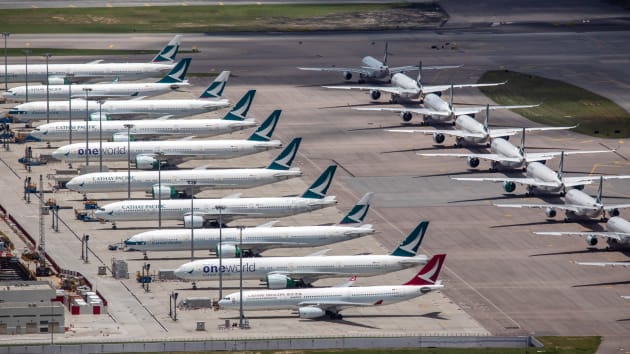
Cathay Pacific has turned down the opportunity to apply for further government employment subsidies for its main business units, meaning it will likely be introducing major job cuts across Cathay Pacific and Cathay Dragon.
The company, however, has applied for government support for its other businesses, including budget carrier HK Express and cargo carrier Air Hong Kong, as well as its Cargo Terminal, Hong Kong Airport Service and Cathay Pacific Catering businesses.
Under the extended government wage subsidy support, the company would be forced to protect jobs from September to November, leading to the belief that the airline will drastically reduce its staff numbers in the non-nominated businesses of Cathay Pacific Airways and Cathay Dragon.
Despite the impact of the COVID-19 pandemic on its operations, the airline is yet to implement any large-scale job cuts, thanks to a $5 billion rescue package led by the Hong Kong government.
The airline has only enforced around 400 redundancies for overseas cabin crew, as well as the offering of voluntary early retirement plans for its pilots.
However, the airline has warned that it is reviewing all aspects of its business model ahead of its fourth quarter results, and this is likely to include significant job losses.
Cathay general manager corporate affairs Andy Wong said, “It is inevitable we will need to right-size our airlines to address the reduced travel market. We continue to make decisions based on the long-term interests of the company and the Hong Kong aviation hub, to protect our future and as many people as possible.”
Meanwhile, rival Singapore Airlines announced last week that it intends to cut around 20 per cent of its staff base amid the COVID-19 pandemic, in its first cuts following the outbreak of the virus.
Analysts have previously warned that airlines such as Cathay Pacific and Singapore will struggle to bounce back from the crisis, as neither has a domestic travel market to rely upon, and international borders remain restricted.
Cathay Pacific has said previously it expected its passenger capacity to be just 8 per cent of its normal figure throughout August and September, however demand remains strong for its cargo businesses.




